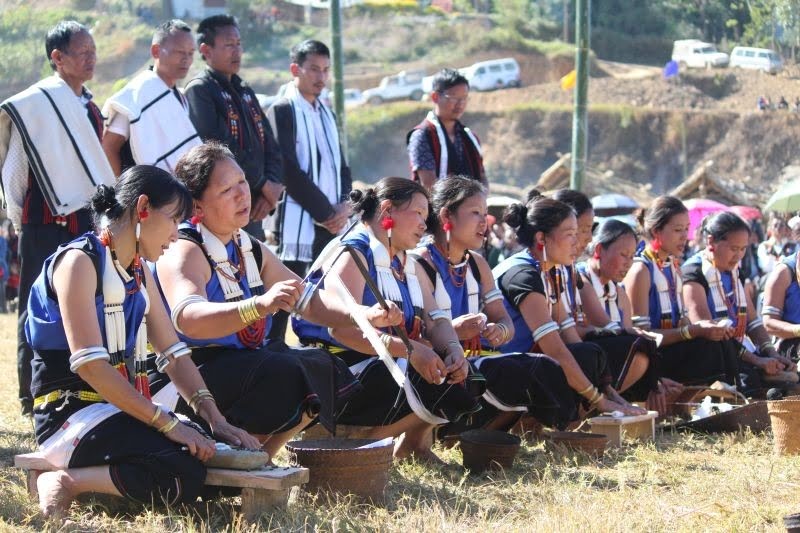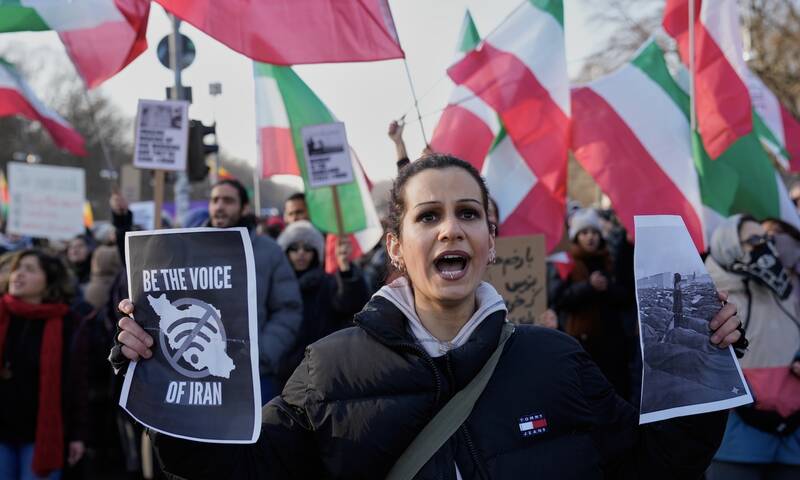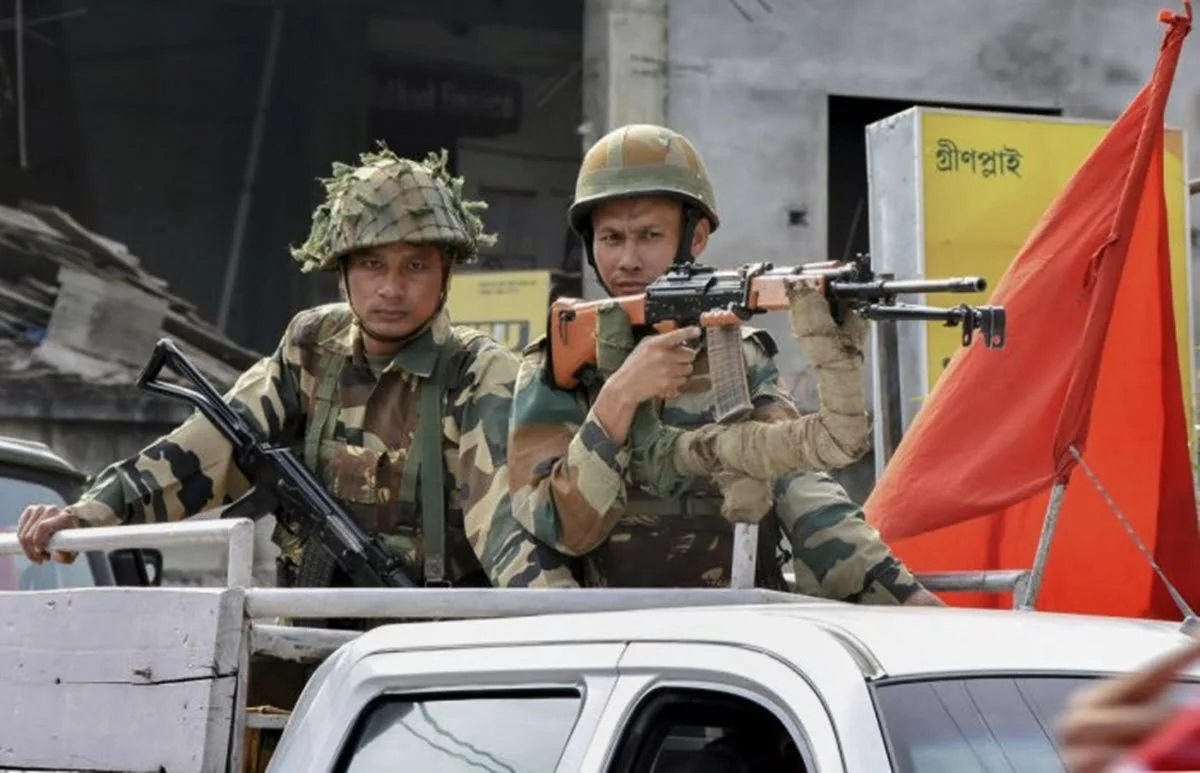The ethnic tribal women are often faced with several cultural bias and prejudices. One of which is how all women from the North-East are considered to be homogenous. Naga women, for one, are not a homogenous group, nor an egalitarian society. Despite the cultural globalisation, the influence of westernisation and the emergence of Naga feminism, there continues to exist inequality and the discrimination of gender.
The ongoing issue of ‘Delimitation’ and the demand of Rengma tribe for ‘District-hood’ in Nagaland is a matter of concern. How will these two issues impact Rengma tribe in general and Rengma women in particular, is a matter of great importance for the community. How will the double ‘D’ i.e., delimitation and district-hood impact Rengma women’s socio-economic opportunities? Where does the grass-root level Rengma women stand? The story about Rengma Mothers group working as vegetable vendors is one of problems and challenges the Rengma tribe women go through. And, how, among the tribes, there are still intersectional groups of excluded tribal womenfolk without representation and voice. Rengma tribe form one such intersectional group in the Naga community.
Also read: Why The Citizenship Amendment Bill Is Causing Concern To The North-Eastern States Of India
Despite being counted under the category of a major tribe, the Rengma tribe in Nagaland has been excluded from district-hood. There is an ongoing debate among various tribe leaders on delimitation in the state. With the ongoing issue of delimitation and demand for district-hood, Rengma women at the grassroots have been obviously affected as a result.
Despite being counted under the category of a major tribe, the Rengma tribe in Nagaland has been excluded from district-hood. There is an ongoing debate among various tribe leaders on delimitation in the state. With the ongoing issue of delimitation and demand for district-hood, Rengma women at the grassroots have been obviously affected as a result.
Rengma women working with SHGs (Self-Help Groups) and as vegetable vendors are often over 40 years of age. A narrative description and practical observation of their workload as a housewife, farmer, mother and a member of the working group will give somewhat of an idea of what they go through.
Their journey begins before sunrise every day as the villages they stay in are at least 35 kms away from the main town. Given the geography of the region, the hilly, kaccha roads are prone to landslides and the Rengma women often suffer especially in the rainy seasons, because their time and work gets delayed. They have to push the only one vehicle stuck in the muddy road, while carrying their market products for sale. Whatever minimal income they earn is to make ends meet, arrange food on the table, for bare survival. For these womenfolk, it all comes down to that one kg of sugar, ensuring their children get basic education. They also help the elderly women in the village who find it difficult to travel by selling their products as well.
Coming to the problems, there is no proper space and place to sell their product in Kohima town, no restrooms for the women, no rooms for a mother to feed or rest her child. Rengma women are mostly not linked to any banks, nor do they have any knowledge about micro-credit systems. Despite government schemes that assure loans and insurance, the women continue to be unaware of information on loans and schemes that could help them.
Failure to bring about delimitation in the state has created an identity crisis for the Rengma tribe. Politically it does not have adequate representation in the state. Ensuring delimitation could erase the problems and challenges women face in particular. Delimitation will provide opportunities for new schools and colleges, proper road connectivity and infrastructure such as sufficient electricity supply and hospitals. Economically, it will ensure Rengma women vegetable vendors have access to market opportunities.
On February 28, 2020, the Union government decided to begin the delimitation process in states including Nagaland. This was justified by stating how “there is a significant improvement in the security situation” and “also reduction in insurgency incidents and improvement in law and order of the State making the situation conducive for carrying out the delimitation”. However, a report by The Wire in August 2020 observes that there are several reasons as to why conducting the delimitation process right now will be a flawed decision and proposes that the delimitation process be conducted on the basis of the 2021 Census instead.
A report by The Wire in August 2020 observes that there are several reasons as to why conducting the delimitation process right now will be a flawed decision and proposes that the delimitation process be conducted on the basis of the 2021 Census instead.
When a leader is chosen, they are expected to work not just in favour of their own tribe or region alone and rather for the holistic development of the State. However, facts have time and again indicated increasing nepotism in tribes when it comes to allotment of government jobs, political representation and central scheme holders belonging to one dominant tribe.
Also read: COVID-19 Impact On Women Migrants From North-East India: Caught In Uncertainty
I worry for my future Rengma generations, whether they would understand and learn about the rich ‘Nzonyu’ (Rengma) traditions, dialects, folksongs and dance. What about the sacrifices Rengma women made for the land, will they be forgotten? Will the Rengma community be accustomed to the same old hardships of life and discrimination?
The more representation and voice the Rengma community garners, the more the women can feel empowered, in turn leading to the welfare of the state. Like Marilyn French highlights, “feminine values must be reintegrated into the masculine society” and in the case of the Rengma community, it suffices to say that the empowerment of the women will bring about the empowerment of the entire tribal community itself.
Rose Rengma (Eastrose Miachieo) is a PhD Research Scholar, School of Social Science (SSS), University of Hyderabad, Telangana. She believes in liberal feminism and is currently working on her thesis on tribal women issues. Maternally from Rengma tribe, she can be found on Facebook and Twitter as Rose Rengma. Her email is roserengma@gmail.com and she can be found on Facebook and Twitter.
Featured Image Source: Morung Express




